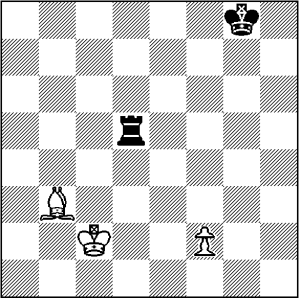(Originally posted 02/08/14.)
Adam Grant, The Dark Side of Emotional Intelligence
Daniel Goleman, An Antidote to the Dark Side of Emotional Intelligence
Dilemma: a hammer can be used either to build a house or to destroy priceless heirlooms. Possessing the tool of emotional intelligence does not mean one will use it favorably. What makes the difference?
In anticipating this post, I searched for a traditional term for “emotional intelligence.” I decided that the traditional term for it is wisdom. The Old Testament consistently refers to people who have emotional intelligence as “wise.” Those who lack it, it calls “fools.”
In the previous post, we saw that emotional intelligence, or wisdom, is a major determinant of personal effectiveness and success in life; in short, of prosperity. To the extent one wishes all people to prosper, it seems desirable that all people be wise.
In short, the wise prosper.
But the wise aren’t necessarily good, and the good aren’t necessarily wise.
There is a lot of confusion about this in the Bible. In Deuteronomy 28, Moses, speaking on behalf of God, promises emphatically that good people will inevitably prosper. There are many more such assertions in the Old Testament. Consider Psalm 37.25: “I have been young, and now am old, yet I have not seen the righteous forsaken or their children begging bread.” Problem: this directly contradicts my life experience of the past three years. At this writing, I remain homeless. Jesus’ words in Matthew 5: 45 seem more in line with reality: “[Y]our Father in heaven … makes his sun rise on the evil and on the good, and sends rain on the righteous and on the unrighteous.”
How, then, to assure that good people are wise, and vice versa?
Goleman discusses three features of empathy.
Cognitive empathy refers to the ability to see another person’s point of view.
Elaine is the most incompetent boss I ever worked for. I finally realized that she is completely lacking in empathy: she is literally unable to see any point of view but her own. Were we to sit on opposite sides of this chess board, this conversation might ensue:

Q: Which is closer to you, the white king or the black king?
A. The white king.
Q. Which is closer to me?
A. The white king is closer.
Using exercises like this, it is possible for cognitive empathy to be taught and learned. However, as Carolyn Gregoire remarked last week, “Plato said that all learning has some emotional basis, and he may be right.” One should not underestimate the emotional work required for someone like Elaine to overcome self-centeredness enough to take on, even for a moment, someone else’s point of view.
Emotional empathy is the ability to feel another person’s emotional state. This is crucial, for example, in advertising, where the task is to understand what will make a target demographic want to buy one’s product; as mentioned here.
The third feature is “empathic concern.” This pertains to compassion or altruism, which is what “empathy” means to most people. In short, Goleman suggests this is the key to making wise people good.
There is strong evidence that most people are born with empathic concern built-in. This is consistent with the evolutionary advantage of altruism (as mentioned here). Paul Bloom and others conducted an important experiment at Yale; the following quotation is from Katie R. Billings’ report, Is Altruism Innate?
“In the first experiment, infants between the ages of six and ten months watched a series of puppet shows. Each puppet had a unique shape and color for the infants to easily distinguish. The first puppet, a red ball, struggled to climb a hill. On several occasions, the red ball was pushed up the hill by a yellow triangle. On other occasions, the red ball was pushed back down the hill, during its struggle, by a blue square. After watching the puppet show at least six times, the infants selected their favorite puppet, either the yellow triangle or the blue square. Over 80 percent of the infants chose the “helpful” puppet, a surprisingly high, statistically significant percentage.”
(It turns out that even monkeys develop favorable or unfavorable opinions of humans based on how they see the humans act: Third-party social evaluation of humans by monkeys.)
I am glad that Billings reports how many of the infants acted this way; that detail was left out of previous reports I’ve read. I wonder about the 20%. Could their conduct now suggest a certain karmic predisposition, and perhaps warn of possible problems to come? Goleman notes, “A Norwegian study found that men who lacked empathic concern in childhood were far more likely than others as adults to end up as felons in prison.”
The crucial question, to me: it remains to be seen whether empathic concern can be taught and learned.
======================================================================
Postscript, 2014-02-09: Thanks to follower Vikkilyn, who sent me the link to Carolyn Gregoire’s article.





